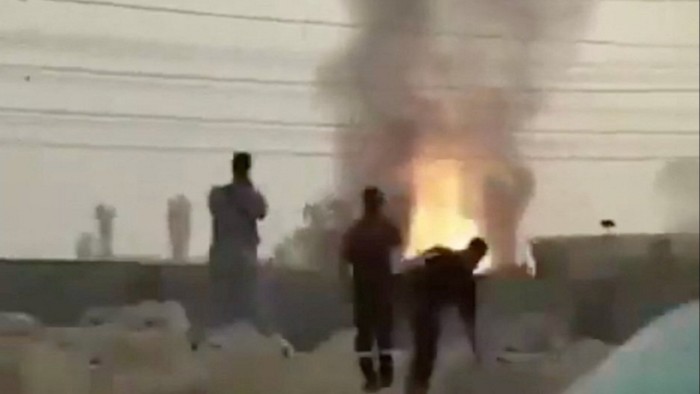Unlock the White House Watch newsletter for free
Your guide to what Trump’s second term means for Washington, business and the world
Israel’s sudden attack on Iran has threatened to disrupt oil supplies in the Middle East, placing the Opec+ cartel’s recent decision to increase crude production into the spotlight.
The Saudi Arabia-led producer group has surprised the oil market this year by fast-tracking the return of idled production even as crude prices fell. It has prompted speculation that the cartel was responding to White House pressure to boost output ahead of a confrontation with Iran.
The US had held several rounds of nuclear talks with Iran, but President Donald Trump had also warned he would consider military options if diplomacy failed, while Israel had openly pushed for strikes.
“I have no doubt that Trump asked the Saudis to pump more oil to deal with his three biggest problems: Iran, Russia and inflation,” said Bob McNally, a former adviser to President George W Bush and now head of Rapidan Energy Group.
“But it is a big leap to suggest this ‘ask’ was to make the attack possible.”
Officials in Riyadh were well aware that pumping more oil would have pleased Trump, who in January said he would ask Saudi Arabia and Opec to “bring down the cost of oil”.
But analysts and traders say the producers had their own reasons to begin unwinding production cuts, independent of geopolitical events.
After holding back supply for almost three years to push prices higher, the output curbs were no longer having as much impact, said analysts. It made sense to begin restoring output in the hope of retaking market share.
Several Opec+ members — notably Kazakhstan — had been pumping above their quota. That was frustrating Saudi Arabia, the group’s biggest exporter and de facto leader. It had shouldered the majority of the curbs, reducing its own output by as much as 2mn barrels a day — about 2 per cent of total world supply.
Despite the US’s “maximum pressure” campaign on Iran — including Trump’s threats to further constrain the country’s oil exports — Riyadh was reluctant to pump more crude in advance of any disruptions.
Saudi energy minister prince Abdulaziz bin Salman privately told people that the kingdom would not repeat its mistake of 2018, when Trump cajoled Opec+ into boosting output ahead of a crackdown on Tehran’s exports, only for the US president to then grant waivers to many importers of Iranian oil.
The moves helped send oil prices to a punishing low of less than $50 a barrel by December of that year — well below budget break-even prices for many producer countries.
Saudi Arabia remembers that sequence of events and Abdulaziz has insisted it will not repeat the error, say people familiar with the matter. The Saudi energy ministry did not respond to a request for comment.
If Saudi Arabia’s recent production moves were a response to the US, it may have been less about Iran and more about the kingdom’s effort to win access to American technology, said Helima Croft, head of global commodity strategy at RBC Capital Markets.
Trump lauded Saudi crown prince Mohammed bin Salman during a US visit to Saudi Arabia last month.
“Though there has been significant push back against the suggestion that there was a ‘pump for Trump’ deal, Riyadh came away from the Trump visit with significant deliverables for their artificial intelligence build out, their civilian nuclear programme and their defence sector,” Croft said. “They certainly have favoured nation status in Washington.”
Still, the big jump in crude prices on Friday after Israel’s attack on Iran will narrow Trump’s options in dealing with other looming geopolitical issues and raises concerns that it could spur US inflation, say analysts.
“The OPEC+ supply additions created space for some of the supply disruption that could come from the Israeli attack on Iran. And it is also true they could have created space for new Russia sanctions. But they don’t create space for both,” said Kevin Book, head of ClearView Energy Partners in Washington.
He said Trump could turn to the US Strategic Petroleum Reserve, the world’s largest emergency stockpile, if the oil price surge is prolonged or Middle East supplies risk being disrupted.
The SPR has around 400mn barrels, well below its 727mn barrel capacity, following drawdowns by former President Joe Biden to limit price increases after Russia’s full-scale invasion of Ukraine.
Trump could also ask the Saudis to pump even more oil, although this would raise difficult questions for Riyadh. Iran is one of the original members of Opec and the kingdom will be wary of disrupting a détente between Iran and its Arab neighbours in the Gulf, analysts said.
“What do presidents do when oil prices go up? Well the first thing is they pick up the phone and ring Saudi Arabia. But Riyadh and other Opec+ members would likely respond cautiously,” said Rapidan’s McNally.
Read the full article here




